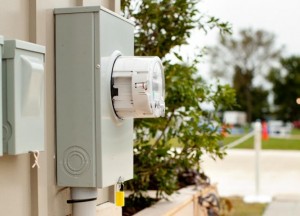Energy Efficiency
Smart meters were meant to create a new method of energy efficiency and modernize our power grid, but is there more to the story?
Smart meters were meant to create a new method of energy efficiency and modernize our power grid, but is there more to the story?
Smart meters don’t really come up in everyday conversation, though in some states the topic is drawing attention from lawmakers and concerned citizens. These devices were originally intended to modernize the power grid, helping reduce energy costs and save power, though critics are now citing health risks, privacy concerns and that costs are actually increasing. This backlash is causing delays in rolling out the new technology, while investigations unfold surrounding the issues raised by the concerned homeowners. The question is, should you really care about smart meters? In short, yes!
 A smart meter is an electronic device that records energy consumption or usage on a constant basis and transmits this information to a central service, such as your power company. The concept is simple, record more granular data and upload it to the power company without having the meter reader come out to your home or office. The energy industry believes this will help the consumer make smart choices about saving energy, ultimately reducing your electric bill and lowering the strain on the power grid. Not to mention the power companies will be saving money from having to employ someone to come out and read your meter.
A smart meter is an electronic device that records energy consumption or usage on a constant basis and transmits this information to a central service, such as your power company. The concept is simple, record more granular data and upload it to the power company without having the meter reader come out to your home or office. The energy industry believes this will help the consumer make smart choices about saving energy, ultimately reducing your electric bill and lowering the strain on the power grid. Not to mention the power companies will be saving money from having to employ someone to come out and read your meter.
Smart meters sound like a good idea at first, though there have been some concerns raised recently that has the attention of state and local lawmakers. The concerns range from compromised privacy to higher costs, rather than savings and some cite health issues from increased electromagnetic fields. We will explore each of these concerns to see if these smart meters are ready for primetime.
These meters collect power usage, data at the granular level to help create personalized power plans, which is thought to lower costs. That granular data is at the center of the privacy concerns, since it can tell when you turn on the TV or hot tub or if you may be away from home for an extended amount of time. With limited security precautions in place, this could become a significant concern to those that think of their home as a safe and private place.
A quick web search on smart meters will yield stories of health issues associated to the installation of these wireless devices. While there is no known risk from an individual unit, which can be similar to being exposed to other wireless technologies, the question arises when you are constantly surrounded by electromagnetic fields, since each home would have them installed. These electromagnetic fields have been known to cause health issues, including cancer, putting smart meters under the consumer microscope. Don’t jump off the deep end though, there is no research we could find linking these devices directly to health issues, but the concern does exist nonetheless.
While less than 1 percent of consumers opt-out of the smart meters, those who do, face the possibility of fees levied against them. For example, a power company in California charges a $75 onetime fee and an additional $10 per month fee for using the older meters. These fees have caused a consumer backlash, bringing local lawmakers to the rescue. The Governor of Vermont is soon expected to sign legislation allowing consumers to opt-out without paying any fees, according to a report by the Huffington Post.
Based on everything we can find, more research should be done about the safety of these new smart meters. There are now websites dedicated to stopping the spread of smart meters which is sure to give some pain to the local power companies. While we encourage methods of energy efficiency, there is still enough doubt on these technologies to question the motives of the upgrade. Bringing the old phrase to mind “if it ain’t broke, don’t fix it.”